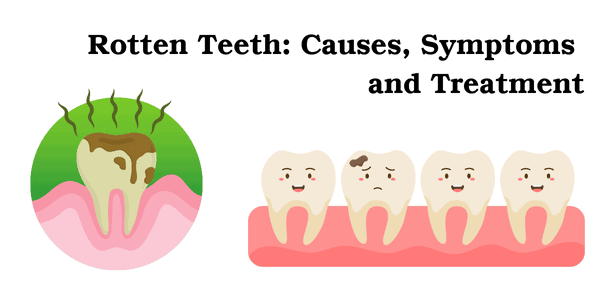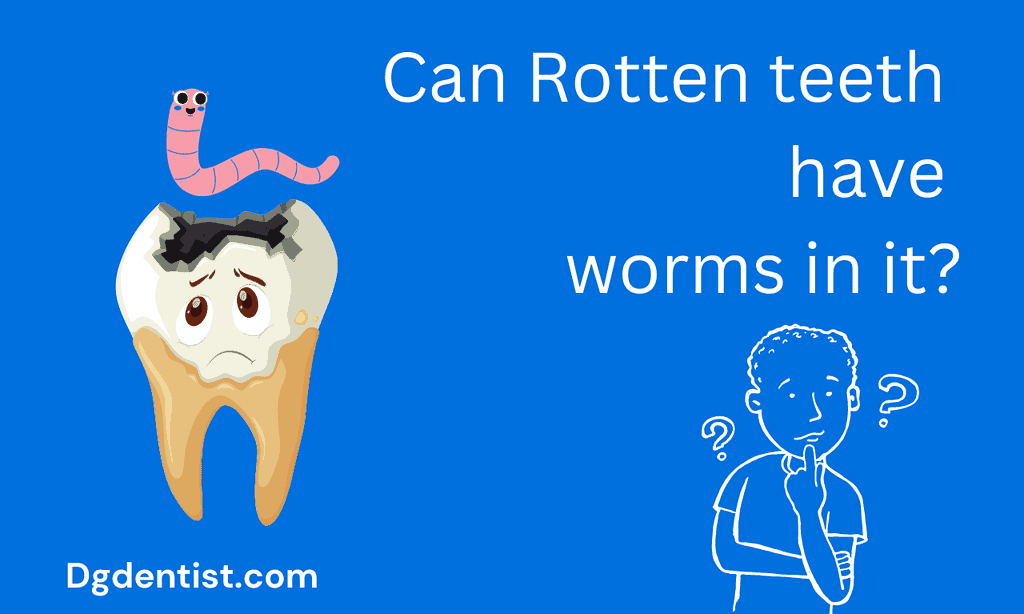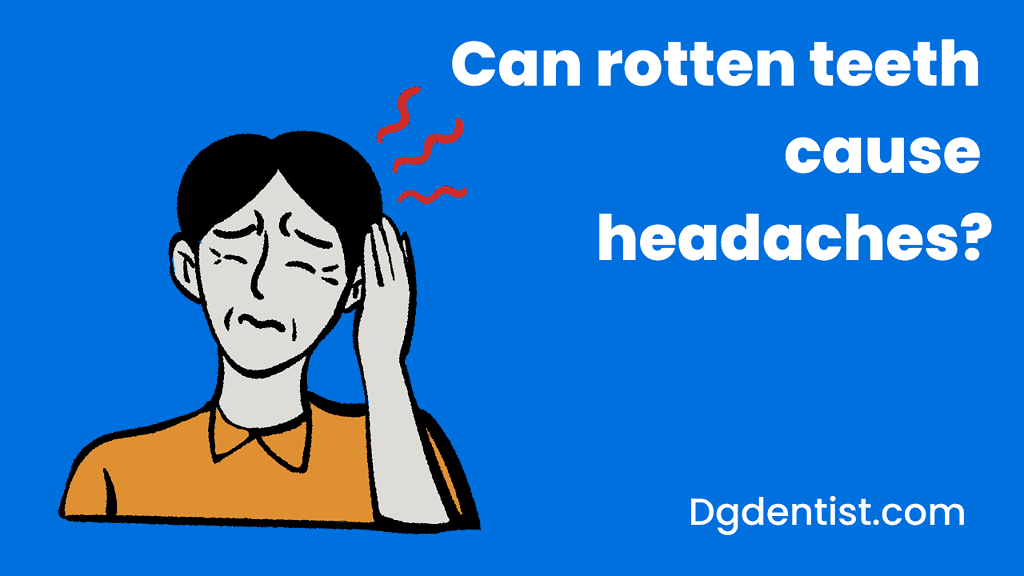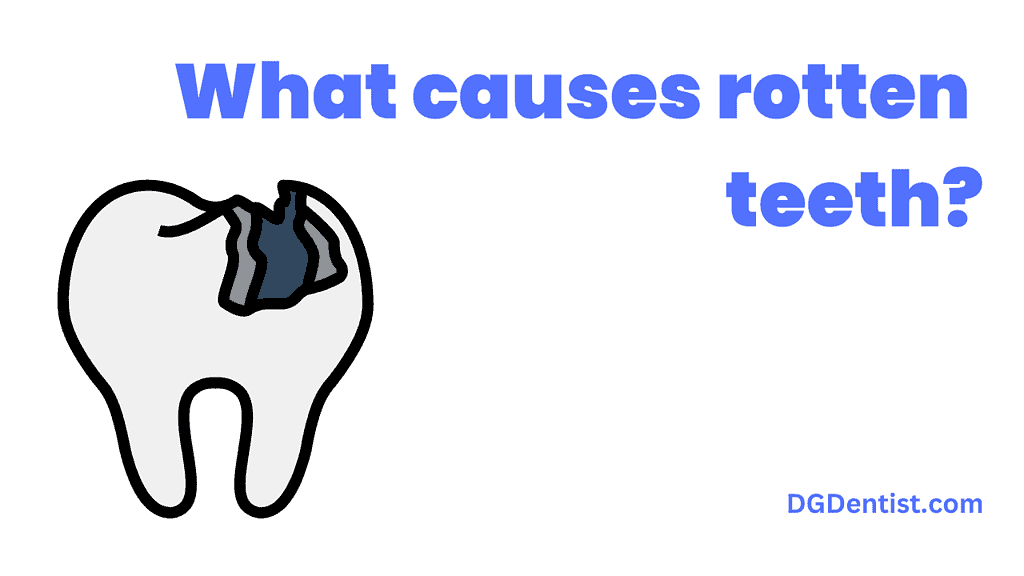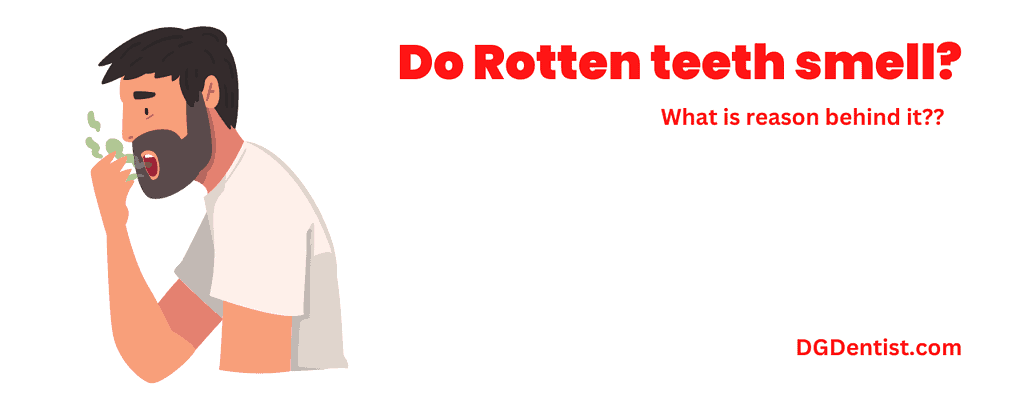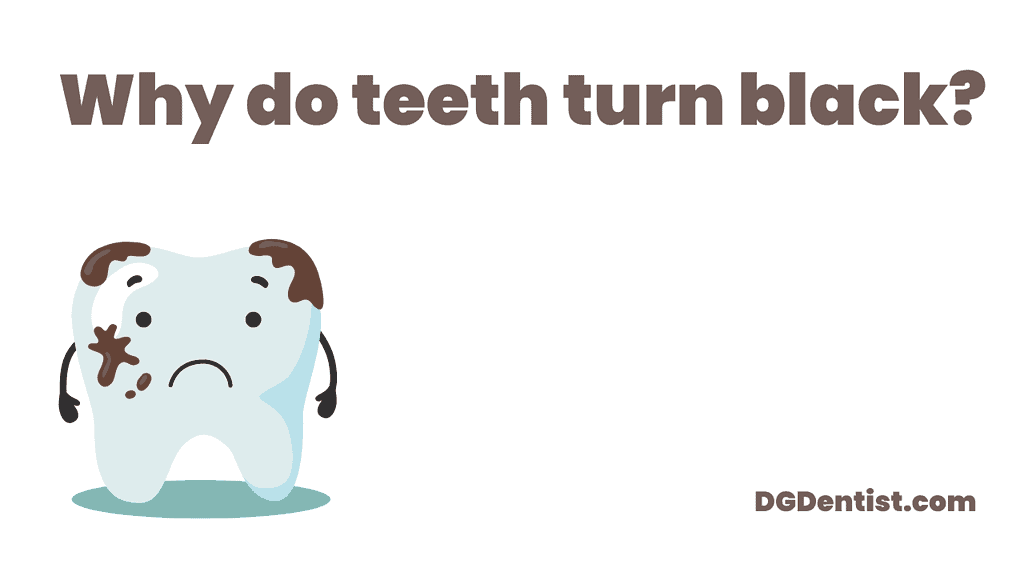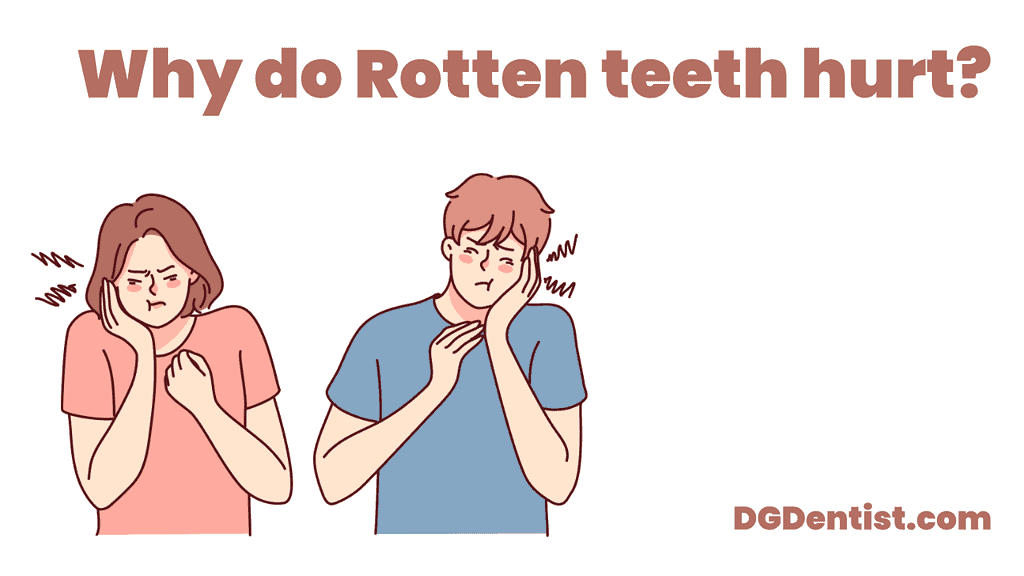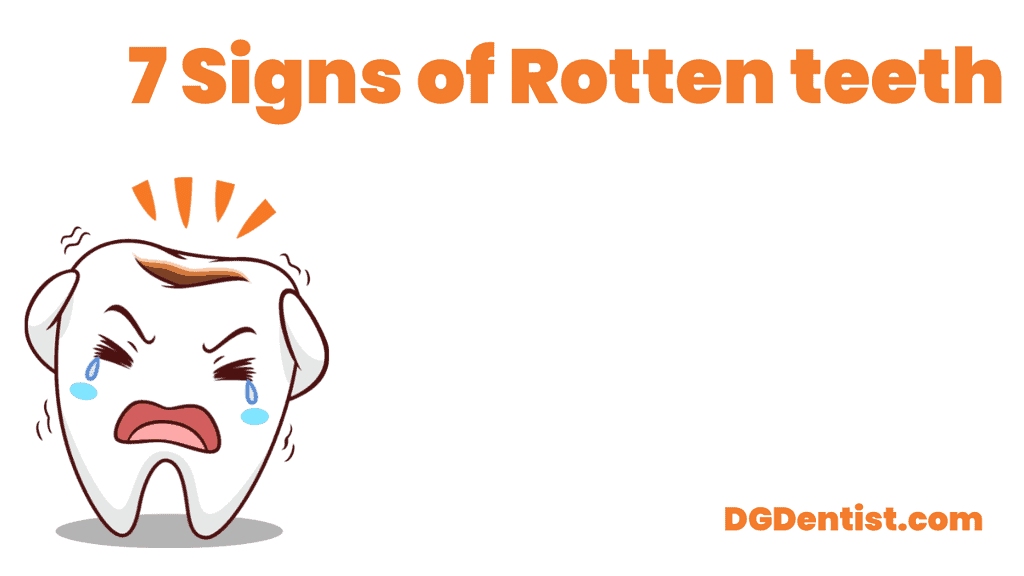Approximately half population of the world is affected by Oral Diseases. In oral diseases, Rotten teeth are the most commonly found disease. Here are some stats regarding it.
According to WHO’s Global Oral Health Status Report(2022), An estimated 2 billion people suffer from caries of permanent teeth, and 514 million children suffer from caries of primary teeth.
The figures are hilarious and increasing day by day. Almost every 3 out of 4 people in Tier 2 countries are affected by rotten teeth or cavities. Thus, We have to learn the basics of why teeth rot, its symptoms, causes, and treatment plan.
Why teeth rots?
This topic is crucial; you need little medical expertise to understand it. We will describe it in as simple words as possible.
We often hear that sugary foods are responsible for rotten teeth, but they don’t explain how? The main culprit for rotten teeth is a bacteria called Streptococcus Mutans. This bacteria is responsible for tooth decay by colonizing a tooth. Sugary foods have fermentable carbohydrates which are eaten by this bacteria, and in return, it creates an acid inside the oral flora. Though saliva neutralizes this acidic environment on frequent intake of sugary foods, the acid is released faster.
The acid released by the bacteria causes demineralization of the tooth structure, which results in Carious or Rotten teeth. Apart from frequent intake of sugary foods, there are a lot of other factors which promote tooth decay.
Causes of Rotten Teeth
Tooth decay occurs due to a lot of reasons. Here are some of them.
Poor Oral Hygiene
As we already told you, The Streptococcus Mutans bacteria colonize when there is a lack of oral hygiene. If there is no colonization, no tooth decay will occur. Thus, Patients with poor oral hygiene are most prone to rotten teeth.
Frequent Intake of Sugary & Sticky Foods
Eating sugary foods more frequently increases the acidic environment and causes more and more demineralization of the tooth structure. Sticky foods like caramel chocolates, toffees, and sugar candies affect more because they stay inside the mouth for longer. Cold drinks have an acidic pH, due to which they also promote decaying at a faster rate.
Dry Mouth
There is a state called Xerostomia, also known as dry mouth. In a patient with a dry mouth, saliva production is hindered, or its release is affected. In both conditions, The mouth remains dry. Saliva creates a basic pH in the mouth and helps against bacterial overgrowth; thus, due to lack of it, Patients are more prone to rotten teeth.
Fluoride Deficiency
Fluoride is the primary building block of teeth. It gives additional coating on the tooth surface, making it stronger and resistant to decay. Thus, in patients with fluoride deficiency, tooth decay is more likely.
Symptoms
Symptoms are significant to differentiate between a rotten tooth and blackish discoloration of teeth. We often assume that we have rotten teeth, but as soon as we go to a dentist, the result is different. To learn if you have a rotten tooth, read the checklist below and find out now.
- Blackish discoloration of teeth
- Food lodgement (stuck) in the tooth
- Pain in the affected tooth (Pain doesn’t occur in the initial stages of tooth decay)
- Bad smell coming from the mouth, i.e., Halitosis
- Soft feeling on the rotten surface
- Sensitivity on eating hot or cold food
- Headache (Though it is not a common symptom)
If you have 3-4 symptoms out of these seven, you should see a dentist for an in-depth checkup.
Pictures of Rotten teeth
To differentiate between rotten teeth and other conditions, We have to know what a rotten tooth looks like in real. Here are some pictures of rotten teeth to give you an idea.

Treatment
Rotten teeth can be easily treated in their initial stages and are usually less expensive than treatment in advanced stages. Let’s Learn about the stages of rotten teeth.
Stages of rotten teeth
There are five stages of a rotten tooth, and the treatment plan differs with each stage.
- Initial demineralization
- Enamel Decay
- Dentinal Decay
- Pulp involvement
- Abscess
Treatment during Stage 1
During initial demineralization, tooth decay can be easily treated by a fluoride treatment. The Fluoride treatments help in the remineralization of the tooth and give strength to it.
Treatment during Stages 2 & 3
During enamel & dentinal decay, A blackish discoloration is seen in the tooth, which needs much more care than the stage 1 rotten teeth. The Dentist will excavate all the rotten parts of the tooth and fill it with tooth-colored material, usually dental composites. This method is called composite filling or restoration.
Treatment during Stage 4
During stage 4, the tooth pulp gets affected, requiring an intense treatment called Root Canal Treatment. In Root canal treatment(RCT), The tooth pulp is removed and filled with filling material, and then composite restoration is done. Since the tooth becomes weak, A crown is placed over the tooth after restoration to provide support and strength to the tooth.
Treatment during Stage 5
When the infection goes through pulp and reaches the bottom of the tooth, It starts forming pus, and this is called an abscess. The pus is drained to treat the abscess, followed by RCT. If the tooth is rotten to an extent where the Dentist can’t save it, it is extracted under local anesthesia.
Note
These procedures are susceptible and require a proper professional approach. We have just informed an outline of the treatment procedure. You should consult an authorized dentist for the treatment to be done. Never try to diagnose and treat a disease by yourselves.
Why is the treatment of rotten teeth necessary?
In the initial stages, the treatment cost and intensity of rotten teeth treatment are meager compared to the advanced stages. Thus, We should consult a dentist as soon as possible for proper dental treatment. Rotten teeth can also result in much more life-threatening issues, like stroke or sepsis. Thus, appropriate and immediate treatment is necessary for a rotten tooth.
Prevention
We have often heard that “prevention is better than cure,” which is true. Let’s learn about some steps to prevent a rotten tooth.
- Brush twice daily – Brushing twice daily can decrease your risk of rotten teeth by killing the bacteria and removing plaque which helps in acid formation.
- Floss regularly – Often, the decay-causing bacteria hide between the spaces of teeth. These spaces are less cleaned by brush and need to be flossed.
- Reduce sugary and sticky food intake – These foods stick to your tooth and increase bacterial colonization. Thus, We should maintain a good diet and avoid these foods.
- Avoid Soft drinks – Soft drinks lead to tooth erosion and increase the acid levels in the mouth, causing more demineralization.
- Visit Dentist Regularly – One should visit a dentist every six months for routine dental checkups. This helps to identify a rotten tooth in its early stages.
Conclusion
Teeth rot is the most ignored disease by people around the world. In developing countries, people don’t want to go to a dentist due to high charges, but they often pay more when the disease aggravates and causes an advanced-stage dental disease. Thus, We shouldn’t avoid it and maintain a proper dental routine at home and visit a dentist regularly.
References:
- https://www.who.int/news-room/fact-sheets/detail/oral-health
- https://www.healthline.com/health/dental-and-oral-health/tooth-decay-stages
- https://www.ncbi.nlm.nih.gov/books/NBK8259/

